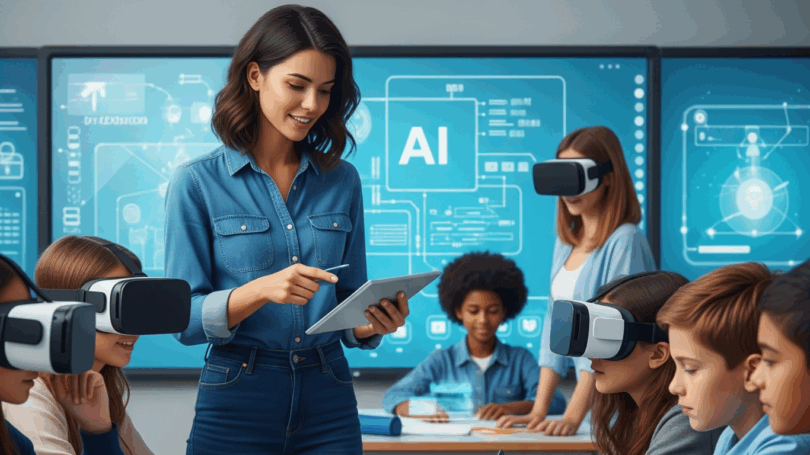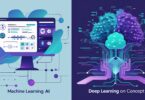The Rising Role of AI in the Classroom
Artificial intelligence is no longer a distant idea from science fiction. In classrooms, it is already reshaping the way students learn and teachers teach. AI can analyze vast amounts of data in seconds, helping educators identify strengths and weaknesses for each learner. This makes it possible to deliver truly personalized learning experiences that go far beyond the one-size-fits-all approach.
From AI-powered tutoring systems to smart grading tools, technology is helping educators save time on repetitive tasks and focus more on mentoring and guiding students. In many cases, AI acts as a silent partner in the classroom, assisting teachers without replacing the human connection that is so vital for learning.
Personalized Learning Without Limits
One of the greatest benefits of AI in education is its ability to adapt to the unique needs of each student. Platforms can assess a learner’s progress in real time and adjust lessons to match their pace and style. For example, a student struggling with algebra can receive step-by-step explanations, extra practice, and even visual aids tailored to their learning style.
This personalization goes beyond academics. AI can also identify gaps in confidence, motivation, and engagement, allowing educators to provide emotional and social support when needed. By making education more flexible, AI opens doors for students from different backgrounds and abilities to thrive.
Smarter Tools for Teachers
AI is not here to replace teachers. Instead, it serves as a set of tools that enhance what teachers can do. Automated grading, lesson planning assistance, and data-driven insights are just a few examples of how educators are using AI to improve efficiency.
For instance, AI can scan through hundreds of essays and highlight key areas for feedback, helping teachers save time while still offering meaningful evaluations. This allows educators to dedicate more energy to creative and critical aspects of teaching, like fostering curiosity and problem-solving skills.
Preparing Students for the AI-Driven World
Today’s students will graduate into a world where AI plays a role in almost every industry. Education systems must prepare them not only to use AI tools but to understand their impact on society. This means teaching skills such as critical thinking, digital literacy, and ethical decision-making.
AI can also help students develop future-ready skills by offering simulations, interactive learning experiences, and real-world problem-solving scenarios. When combined with traditional teaching, this creates a learning environment that is both modern and grounded in core values.
Challenges and Ethical Considerations
While AI offers immense opportunities, it also comes with challenges that cannot be ignored. Concerns around data privacy, bias in algorithms, and overreliance on technology are important to address. Schools must ensure that AI tools are transparent, fair, and used in ways that protect students’ rights.
There is also the risk of widening the gap between schools that have access to advanced technology and those that do not. Equal access to AI resources is essential to make sure every student benefits from innovation, not just those in wealthier communities.
The Human Element Will Always Matter
Despite all the benefits AI brings to education, it cannot replace the human relationships that make learning meaningful. Teachers inspire, motivate, and connect with students in ways technology cannot replicate. The future of education will likely be a balance between AI’s efficiency and the empathy, creativity, and mentorship that only humans can provide.
Artificial intelligence has the potential to make education more inclusive, personalized, and effective than ever before. The truth is that AI is not here to take over classrooms but to support teachers and empower students. With the right approach, AI can be a powerful partner in shaping a future where learning is both technologically advanced and deeply human.







